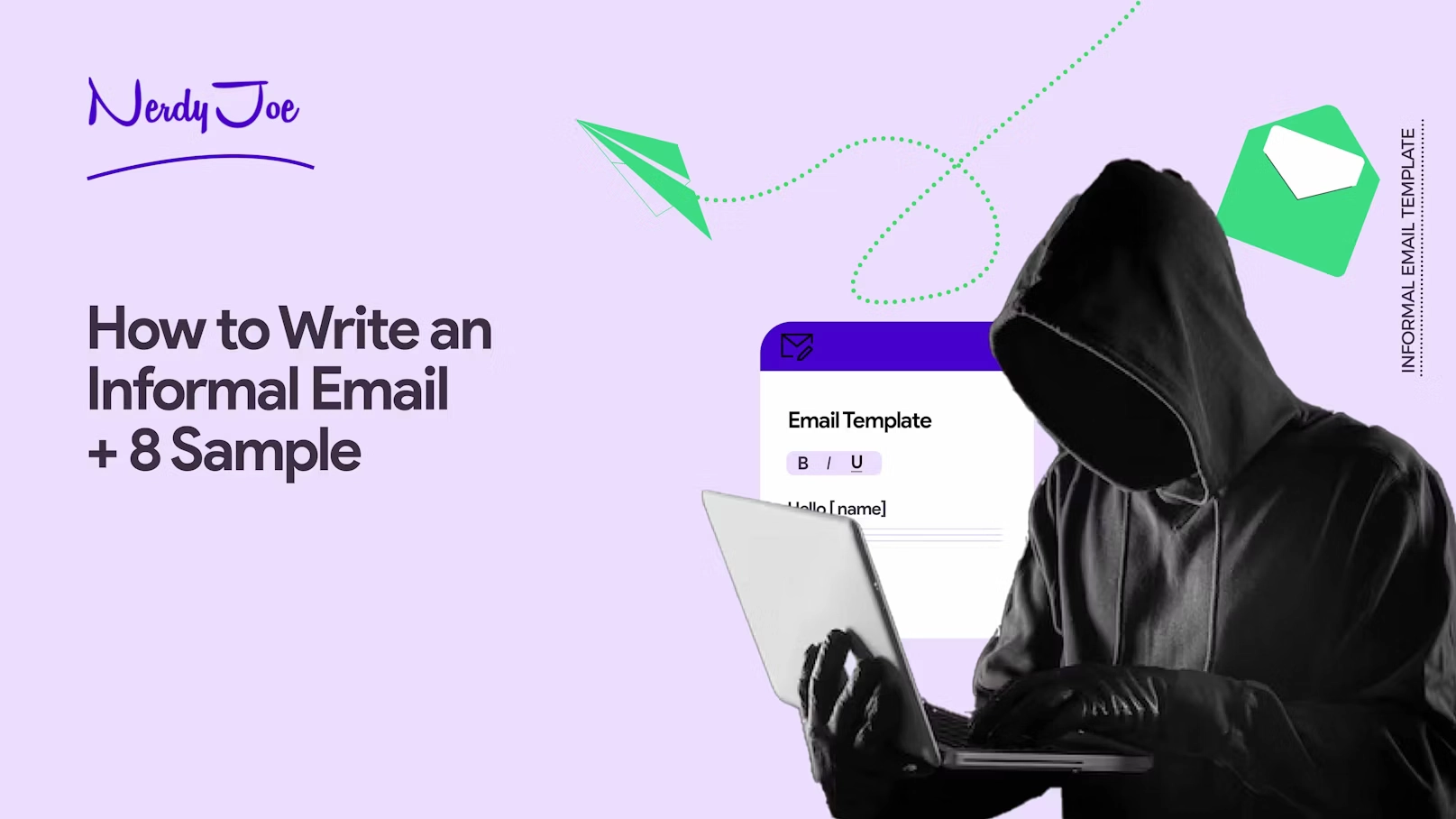No matter what type of cold email outreach campaign you’re involved in, cold email templates can be a good place to start and a great way to speed up your process.
You can use templates as a base to learn how to write and inspire unique cold emails for your business.
In this article, you’ll learn cold email best practices, share a few ideas on how sales reps can improve the email copies, and we’ll share with you some of the best cold email templates that helped us get tremendous results.
How to write cold emails that sell?
Great cold email strategy works. People have built careers and launched start-ups on the back of cold emails.
Product Hunt started with an email outreach campaign and so did Timehop and Storefront.
But here’s the kicker: Sending cold emails and getting amazing results are not mutually inclusive.
Your approach to cold emailing your prospects is what determines the outcome you get at the end of the campaign.
Shane Snow, the co-founder of Contently, shared an eye-opening experiment on cold email.
For the first campaign, he sent out 1,000 cold emails to C- and VP-level executives from the Fortune 500 (some of the busiest businessmen on the planet).
Result? He got almost no response.
But Shane tried again after learning and applying a few principles and got better results:
45.5% open rate (which is remarkable considering the target audience. In fact, according to MailChimp, the average open rate for business emails ranges from 14% to 23%. So, 45% is an excellent result.)
Truth is, cold email can yield mind-blowing results. But the results you get depend how you approach it and the practices you implement.
Here are a few practices you need to implement.
Define your IDC and build your buyer persona
When drafting your prospects’ list, it’s essential to clearly define your ICP. Cold outreach campaigns without an ICP are pointless guesses.
Until you know who you’re trying to attract, it is impossible to target and convert new customers.
That’s the very reason you need to conduct thorough research on your target companies and determine the best profiles that identify your customers. This should include information like:
- industry and the niche;
- geographical location and time zones;
- company size;
- revenue;
- business goals and missions;
- pain points and any other attributes you deem necessary.
These will provide you with essential detailed information about your targets and you can qualify business leads based on key factors like their situation, budget, timeline, and industry.
After this, you still need to research and determine the individuals that must sign off on the deal, that’s where the buyer persona comes in. Technically, it’s a continuation of your ICP research and builds upon it to find the appropriate person.
The buyer persona outlines the attributes of the key decision-makers on your prospect list. In addition to everything already mentioned in your ICP, it will include the following:
- job title;
- income level;
- goals;
- interests, attitudes, beliefs, and personality;
- preferred technologies;
- why they buy your product – what’s their primary purpose;
- how often they buy it;
- objections – what would cause them not to buy
Now that you have all the firmographic and technographic data on your prospects, it’s time to look for their email address.
Here’s how.
Find the right email address of your prospects
There is no point in getting ready to send cold emails without an email list.
Email addresses are the heart of cold emailing. Mind you, not just an email list, but a list of verified and authentic email addresses.
If you don’t know how to get those, here’s a quick guide.
LinkedIn Search
Few people know that the majority of their prospects have their email addresses on LinkedIn.
To find it, just head to the LinkedIn search bar and search for your prospect by name.
Then click on “Contact info” and you’ll see all their details including the official email address, website, birthday, Twitter profile, etc.
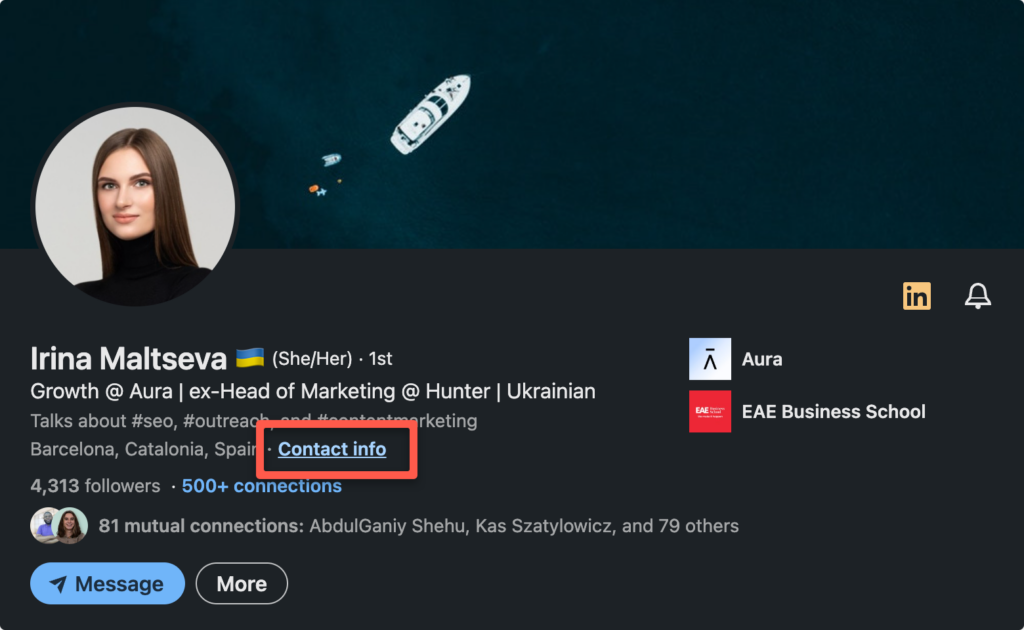
Here you go.
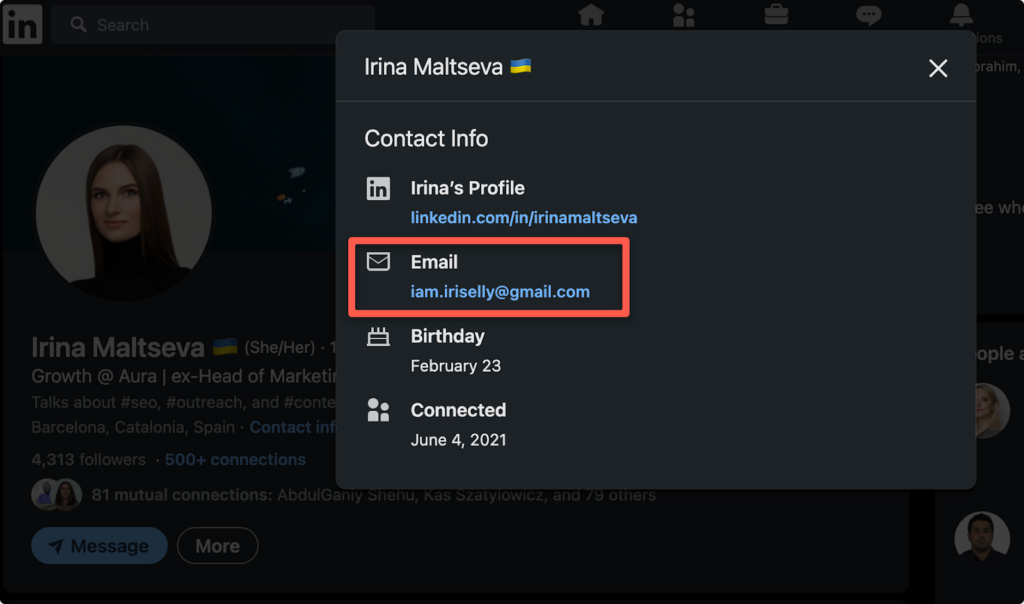
Read more: LinkedIn InMail Vs. Email: Which Closes More Deals?
Lead magnets
Also known as opt-in offers, lead magnets are free products or services that you give away for the sole purpose of collecting the contact information of your prospects. Here is an example from Nerdy Joe.
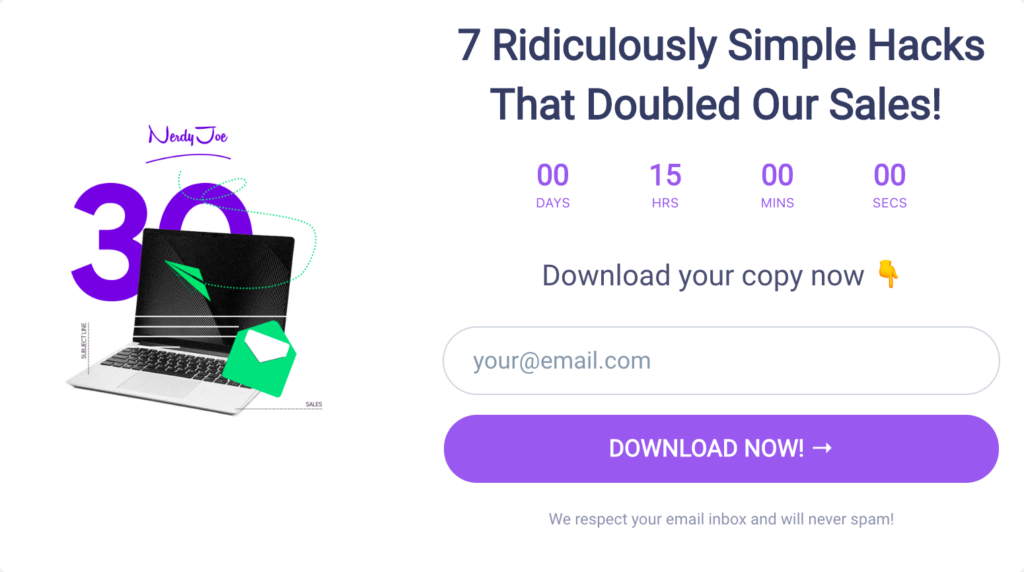
So, these can include:
- ebooks;
- PDFs;
- trial subscriptions;
- samples;
- white papers;
- spreadsheets;
- analysis reports;
- free consultations or free courses, etc..
Whatever you offer as a lead magnet, make sure it is valuable to your target audience.
Read more: 650+ Power Words to Boost Your Conversion (+ Templates)
Email finder tools
If you are racing against the clock, then the above two techniques may not be appropriate.
And in that case, nothing beats email search tools as they can help you get a list of verified email addresses in minutes. The best tool we recommend here is Hunter Email Finder.
It is a powerful tool that helps you find the contact information of your prospects in no time. Simply put in their name and company URL. And the trick is done.
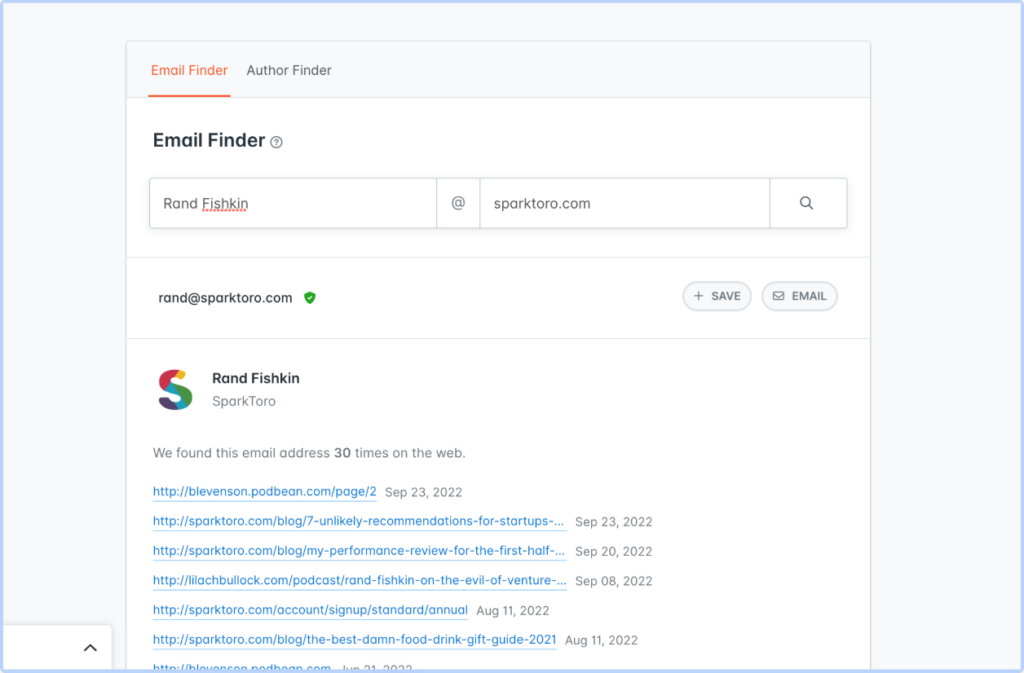
How it works: Hunter gathers all the data found on the web – email formats, email addresses, verifications, and other signals – then shows you the right contact information in seconds.
Now you have the email addresses in your pocket. It’s time to personalize your cold email templates to grab the attention of your prospects.
Here is how.
Personalize your cold email templates
Cold email templates should never be copied and sent as they are.
Personalization shows the prospect that you have done your homework, and that you’re not just another spammer. It increases your deliverability rate.
If you wonder how you can add personalization to your cold email campaigns, here are some practices you may want to consider.
1 – Use icebreakers
If you’re sending a cold email, it means your prospects don’t know about you and you are landing in their inbox as an unsolicited guest. Common sense would require you to smoothen the atmosphere before you start talking business, that’s the whole point of using icebreakers.
In the context of cold email, icebreakers are complementary or factual sentences you lead your outreach message with. The idea is to pique your prospects’ interest and make yourself interesting enough so that they want to read what you have to say. Here is how to go about it.
Start your copy with a simple yet punchy phrase that indicates that you know your prospects and what they do very well. . You can also use a greeting that makes them feel connected to you right from the get-go, a shout-out, or a compliment.
Examples:
- Congratulations on your new role as General Manager of Digital Media and Games at the XYZ Foundation. You’re charting an impressive career path. Keep up the good work.
- I read John Doe’s recommendation on your LinkedIn profile and I must say good job. You are the type of marketing executive that every company dreams of. Keep up the good work.
- Your work experience with XYZ is very inspiring. Congratulations on your 10th anniversary at the company.
- I’m probably late to the party but congratulations on your new role as Vice President, at XYZ. By the way, you’re charting an impressive career path. Keep up the good work.
- Etc.
Read more: How to Write Cold Email Opening Lines That Get Replies
2 – Mention the technologies they use
If you sell a competitor product, having an idea of the technologies your prospects use is another effective way to break the ice—plus, it’s a clear sign that you’ve done some research on them prior to the email campaign launch.
BuiltWith is a great tool to find this. It’s a tool that shows you all the technologies a company uses on its website.
Examples:
- Since you use XYZ for SEO, I wanted to know if you are also facing X and Y problems.
- We’ve recently talked with 30 professionals who use XYZ to gain more business and we’ve learned that they all struggle to achieve ABC.
3 – Mention relevant social media activities
If your prospect has recently shared, liked, commented, engaged with a post, or participated in an event (whether related to you or not), you can mention and comment on their engagement and kick off the conversation from there.
Even better, if it’s related to what you sell and want to discuss with them, you can spark it as the reason why you’re reaching out to them.
Examples:
- Noticed you liked the {{XYZ}} post about X—I wanted to ask about [related topic].
- Loved your LinkedIn post about X. It’s so relatable!
- I just came across Jane Doe’s post about ABC and enjoyed reading your comment on the issue. I like your unique take on how we must implement CDE to achieve ABC for the long term.
4 – Touch on their goals and responsibilities and avoid stating the obvious
Check out your prospect’s Twitter or LinkedIn profile. Reference a specific goal or responsibility they listed and use it to explain how you can help make their job easier and more impactful.
Example:
- I recently found out that you are responsible for increasing advertising ROI at {{company name}}. Have you tried [strategy]? Happy to share my learnings if not.
- Saw that you handle localization and translation at {{company name}}. Are you the right person to contact about your internationalization strategy?
5 – Leverage a highly personalized P.S. Note
One of the best ways to add value to your content without detracting from your main message is to leverage P.S. notes.
If you and your prospect have common passions or backgrounds, you can use them.
Example: I discovered we have some overlap in AirForce. I was in from 2004 to 2006 as a Medic. Thanks for your service!
Read more: How to Create Cold Email Sequences That Drive Sales
Common mistakes most B2B companies make when cold emailing
Let’s look at some common mistakes B2B companies make while sending out cold emails.
Poor, lengthy subject-line
For such a small word count (4 to 6 on average), your subject line has a lot of power. The subject line is one of the first elements recipients see about your cold email. A poor one can nullify all your efforts to get your emails open and read.
Unfortunately, most B2B companies don’t get it right.
Some make it too long whereas the majority of emails are now read on mobile devices. So if it’s too long, it won’t fit on the smaller screen of your mobile device.
- Gmail displays the first 70 characters of your subject line
- the iPhone email client only accepts 41 (in portrait mode)
- on an Android phone, the subject line can only contain 30 characters
And the fact is, if people don’t get to read the entire subject line, chances are they won’t be excited enough to open your email.
Surface-level personalization
We can’t stress enough the importance of laser-focused personalization in cold emails. Gone are the days when the {{prospect.first_name}} and {{company name}} attributes alone could account for personalization. Nowadays, you need to dig deeper. A lot deeper, indeed.
221.19 million emails compete for attention every minute. The lack of personalization just makes your email another one in the inbox that never gets clicked.
Obsessed with scaling rapidly
One more reason why most cold email campaigns from B2B companies fail is that they are too focused on volume.
Sure, you need to scale up at some point in time. But first, you need a formula that works.
If that means sending emails one by one in the beginning, then do it. True, it’s slow, but it’s much better than sending hundreds of emails at once with no response. There’s no point in settling for a game of numbers.
Once you find your own repeatable personalization process, then you can start scaling your campaigns.
Proven sales cold email templates
Tim Watson, the founder of Zettasphere, put it so well when he said: “the fundamental principle of email will never change. Send the right message to the right person at the right time.”
To further help you craft and send the right email for the right contexts, we’ve compiled a list of proven templates that you can use.
Remember, these are no cure-all.
Edit, shorten, or change them as you see fit to make your message relevant to your prospects.
Let’s get started.
Cold email templates with a direct approach
It is estimated that approximately 319.6 billion emails were sent and received every day in 2021 alone.
That’s 13.31 billion emails per hour and 221.19 million emails per minute. It’s substantially enormous, and thus it’s sometimes useful to get straight to the point.
Using cold email for selling products? Here is a cold email template you can use.
Subject line: Achieve [[Goal]] in [[Timeframe]]
Hi [[First_name]],
I have an idea that I can explain in 10 minutes. This will help [[Prospect company]] achieve [[Goal]] in [[Time frame]].
[[Another customer]] who used [[Product name]] was able to achieve this in [[Time frame]].
Would you be interested to know how it happened?
If yes, let me know a good time this week for a quick chat.
Best,
[[Sender’s Name]]
Why it works: This type of email works very well because you don’t waste your prospect’s time using excessive wording. No fluff. You get right to the point.
If you are targeting the always busy executives, this template can be the best choice as it also offers social proof to support your straightforward claim.
The attention-interest-desire-action (AIDA) cold email template
AIDA is a popular content-writing formula widely used by marketers. It simply involves writing a cold email with an approach to:
- Grab their attention
- Create interest in your offer
- Get them to build the desire
- And eventually, get them to take your desired action.
Here is a template you can use for this approach.
Subject line: [[Value]] for [[Company name]]
Hi [[First_name]],
How do you feel solving [[Pain point]] with [[Solution]] and making [[Benefit]]?
Our software has been able to save clients like yourself as much as [[Specific figures]].
Just ask experts like [[Experts they know of]] who we’re happy to count as satisfied customers.
Would you like a personalized demo? I’d be happy to schedule one.
Is next week a convenient time for us to talk?
Thank you,
[[Sender’s name]]
Why it works: This cold email template starts strong with a unique offer, provides social proof and ends up with a clear call to action.
Value-based cold email templates
You can also create a cold email that highlights your value proposition in your email body and ends with a quick call request.
Subject line: Have you tried using {{tool}} for {{goal}}?
Hello [[First_name]],
I recently came across your tweet on [[Problem you are facing]]. Have you tried using [[Recommendation]]? I use that with my sales team and it has been incredibly successful.
Happy to chat more about it or send over some templates and examples if you’re interested.
That being cleared, I have a quick question!!!
Are you interested in learning more about [[Product/Service]] and how it could benefit your organization?
Our sales teams worked on a customized version for [[Company name 1]] and [[Company name 2]] we’ve helped them get to [[Results]].
We understand your unique [[Prospect’s pain points]]. We can work on a unique [[Product or service offer]] for your needs.
[[Expected results]]
[[Describe benefits]]
I assumed you could be interested in what we have to offer.
If you want, we can schedule a quick call to discuss any questions you may have about [[Product/Service]].
[[Meeting Link]]
Let me know how this sounds!
Best,
[[Sender’s Name]]
Why it works: Add value first, then sell.
Problem-Agitate-Solve (PAS) cold email template
This is one of the simplest ways to create cold emails. Simply mention one problem your prospect is facing, ignite the problem, let them know how it’s holding them behind, and then introduce your solution as the hero they need.
Subject line: [[Value]] for [[Company name]]
Hello [[First_name]],
I recently audited your site on Ahrefs and I noticed that you had [[Issue 1]], [[Issue 2]], [[Issue 2]].
These are unfortunately SEO issues that hinder your site’s performance on the SERP and make it hard for Google to index your web pages.
[[Client 1}} and [[Client 2]] had similar issues on their sites. We helped them install our [[Solution]] and implemented [[Use cases]]. A few weeks later, they reached [[Results]].
I’m sure these are results you would like to see for [[Company website]]
Happy to chat more about it or send over some issues I’ve found if you’re interested.
Regards,
[[Sender’s Name]]
Why it works: The cold sales email template highlights the customer’s pain points and provides a solution.
Humor-based cold email templates
People get tons of emails every day, and one of the best ways to stand out is to integrate humor. If used appropriately, humor can get even the most defensive prospect to lower their guard and engage with you.
Subject line: I hate sales emails too!
Hi [[First_name]],
Yes, I’m sending you one right now, but in my defense, it’s because [[Solution]] can help [[Prospect’s company name]] [[Benefit]].
If you’re really not interested in achieving [[Goal]], please let me know so I can stop being a killjoy.
FYI, every time I click “Send” it hurts me 😂. Help stop my suffering and please find a suitable time on my calendar here.
Regards
[[Sender’s Name]]
Why it works: Starts a fun, relatable subject line that invites the reader in. It is also a casual email you can use even when you have no prior connection with the prospect.
Follow-up cold email template
Subject line: Will this convince you?
Hey [[Company name]] team,
Typically when I haven’t heard back from someone, it means they are either swamped or aren’t interested in our offerings presently.
If it is the latter, is there anything that I can do to make you consider us for [[Solution]]?
How about this case study which explains the scenario where we helped [[Another company]] to achieve [[Goal]]?
Link to access case study — [[URL]].
Let me know if you need additional details about this case study or any other information in general.
Thanks,
[[Sender’s Name]]
Why it works: This cold sales email template reminds the prospects of the solution and ends with a strong call. It’s also kept short and to-the-point.
Direct offer cold email template
If you want to make an offer to your target prospects without wasting a single second on their time, this is your template.
Subject line: [[Offer]]
Hey [[First_name]],
If every day you find yourself with a…
[[Pain point 1]]
[[Pain point 2]]
Then this offer is for you.
[[Low-risk offer]]
[[First_name]], now at least you have the opportunity to solve [[Pain]] and achieve [[Goals]].
What are you waiting for to jump on the opportunity? Act now to take advantage of [[Low-risk offer]].
[[Sender’s Name]]
Why it works: Highlighting your prospects’ pain points always works. If you can write a short cold email that highlights their pain points and how your products solve their pain, you’ll always win.
Handling objections after 1st touch email
Running a cold email outreach and getting results is not anything like a screwdriver on a screw.
Especially since they didn’t know about you. People are bound to have objections. That’s why you’ll need to prepare a second cold email to handle their objections.
Subject line: [[Objection]]
Hi [[First_name]],
I want to tell you the story of [[Client 1]] who…[[Tell a story and handle some more objections.]]…And he ended up making [[Results]].
Why am I telling you this?
Well, because just like you, [[Client 1]] also had [[Problem]] but by using our strategy, they were able to [[Results]].
This, too, can be you, if you want, [[First_name]].
Does it make sense if we talk about how to attack [[Problem]] and help [[Company]] have [[Results]]?
If so, reply YES to this email or click here!
[[Sender’s Name]]
Why it works: The main reason this cold email is effective is because it allows you to tell your prospects stories of other people they can easily identify with.
Doing so in your cold email outreach suppress doubt and they can easily take your desired action.
Before-After-Bridge (BAB) cold email template
The marketing industry owes this cold emailing approach to Buffer. The idea behind the approach is to help you customers imagine what their lives would be like after integrating your solution.
Here is a template for this.
Subject line: What success would be like
Hello [[First_name]],
[[Icebreaker]]
I saw on LinkedIn that you are interested in [[Prospect interest]].
May I ask if you (or your clients) have ever used [[Solution]] in [[Prospect interest]] to [[Do something the prospect cares about]]?
With our clients [[Client names]], our [[Solution]] helps them do [[XYZ]] and as a result, they’re able to save [[XYZ]] on their monthly spending.
I’m sure these are results you’ll also want to see at [[Prospect’s company name]] So, I believe you might also be interested in this.
Anyway, let me know how you feel about this.
Yours truly,
[[Sender’s Name]]
Why it works: It reminds your prospects of the pains they’re facing right and paints a bright future for them.
Product introduction cold email template
Are you launching a new product and want to sell it to your target customers by way of cold emails?
Here is the perfect cold email template for this situation.
Subject line: [[Your solution]] + [[Prospect interest]]
Hello [[First_name]],
[[Icebreaker]]
I saw on LinkedIn that you are interested in [[Prospect interest]].
May I ask if you (or your clients) have ever used [[Solution]] in [[Prospect interest]] to [[Do something the prospect cares about]]?
With our clients [[Client names]], our [[Solution]] helps them do [[XYZ]] and as a result, they’re able to save [[XYZ]] on their monthly spending.
I’m sure these are results you’ll also want to see at [[Prospect’s company name]] So, I believe you might also be interested in this.
Anyway, let me know how you feel about this.
Yours truly,
[[Sender’s Name]]
Why it works: This cold email template rapidly provides context and introduces the new product. It also mentions companies the new service is currently serving and the audience can easily identify with it.
Cold email template for giving more advantages
If you’ve already sent one cold email and your prospects don’t reply, you might want to consider sending another email that provides even more advantages.
Here is a template you can use.
Subject line: I just did [[Solution]] for [[Client]]
I just partnered with [[Client]] to implement [[Solution]] for their [[Department of interest]] and achieved [[Metrics]]. As a result of [[Metrics]], their company has been able to
[[Benefit 1]]
[[Benefit 2]]
[[Benefit 3]]
I’d also partnered with [[Client]]for the same [[Solution]] and they had similar results. Specifically, we were able to double their [[Metrics]].
It’s my understanding that both these companies are similar to yours in that
[[Common trait 1]]
[[Common trait 2]]
So, I’m sure that implementing [[Solution]] will yield the same crazy results.
If this is something you are interested in, just reply to this email with a Yes! And we move on from there.
Yours truly,
[[Sender’s Name]]
Why it works: This cold email template is the perfect follow-up to your previous cold email.
Cold email template for when you don’t know if you have the right prospect
You have this amazing offer but you are unsure as to whether the person you are contacting is the right person. We’ve got you covered.
Here is your cold email template.
Subject line: Is this you?
Hello [[First_name]],
Hope all is well with you.
I’m [[Your name]] and I’m responsible for business development at [[Your company]]. We have recently launched a new solution that [[One sentence pitch – what your solution does]].
Based on your online profile [[Mention profile link]], it appears that you might be the right person, or at least point me to the right person to talk about [[Problem solved by your product]].
If that’s not you, could you please direct me to the [[Job title]] in charge of [[Department that will be using your solution]]?
Our [[Solution]] might be of interest to them.
Thanks for your help.
[[Sender’s Name]]
Why it works: This email is a friendly and polite request. Your prospect will most likely redirect you to the right person if it’s not them.
Cold email that flatters your prospect’s ego
Flattering your prospect’s ego is one of the fattest ways to win them over in your sales process. It’ll get them to care and hear out what you have to offer.
There are lots of ways you can flatter their ego, from mentioning their blog post you love to.
Subject Line: Congratulations on [[Recent achievement]]
Hi [[First_name]],
Well done! The 2019 Inbound Marketing conference is just around the corner, and I just saw that you have been selected to speak.
The task of preparing for your presentation is naturally taking a toll on other tasks. Let me show you how our software can help you reclaim ten hours or more per week if you have trouble keeping up.
Do you have ten minutes next week to give you a personal demo?
Best regards,
[[Sender’s Name]]
Why it works: This cold email flatters their ego and easily gets their attention.
Key Takeaways
- Cold emails that truly bring results are the ones that are personalized and super-focused on making target prospects feel individual and understood. Also ensure your cold email subject lines are well-written and are position to drive action.
- Copy-pasting and blasting email lists with templated emails across your cold email outreach campaign is not a good idea — it will not work. You’ll only see your churn rate spike and your reputation slump after a single cold email campaign.
- The one way to be successful in your cold email outreach campaign using templates is to strike a healthy balance between the cold email templates and personalization. You need to research your target prospects and edit the templates to come up with 100% super-targeted cold emails that align with your prospects.
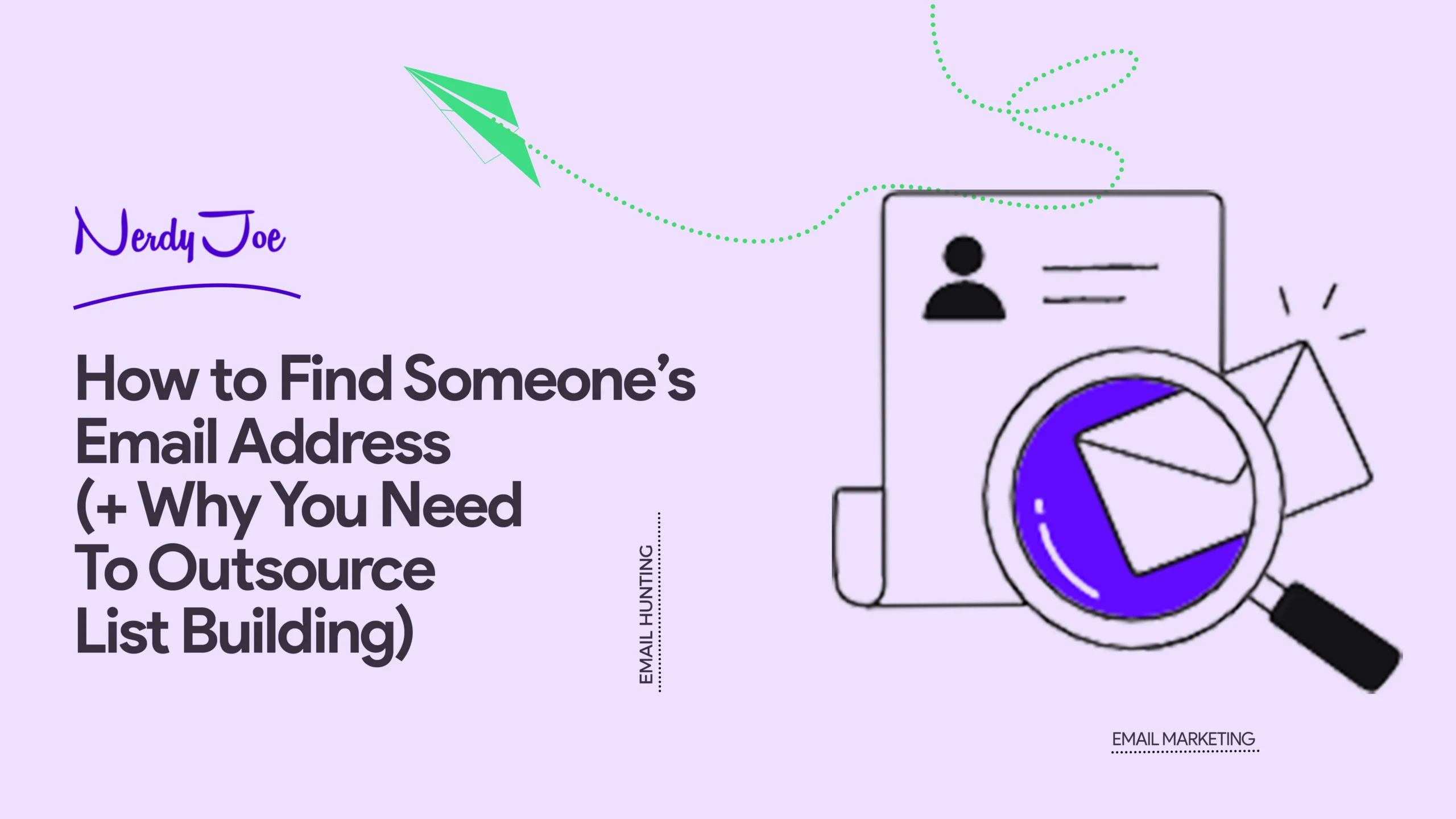
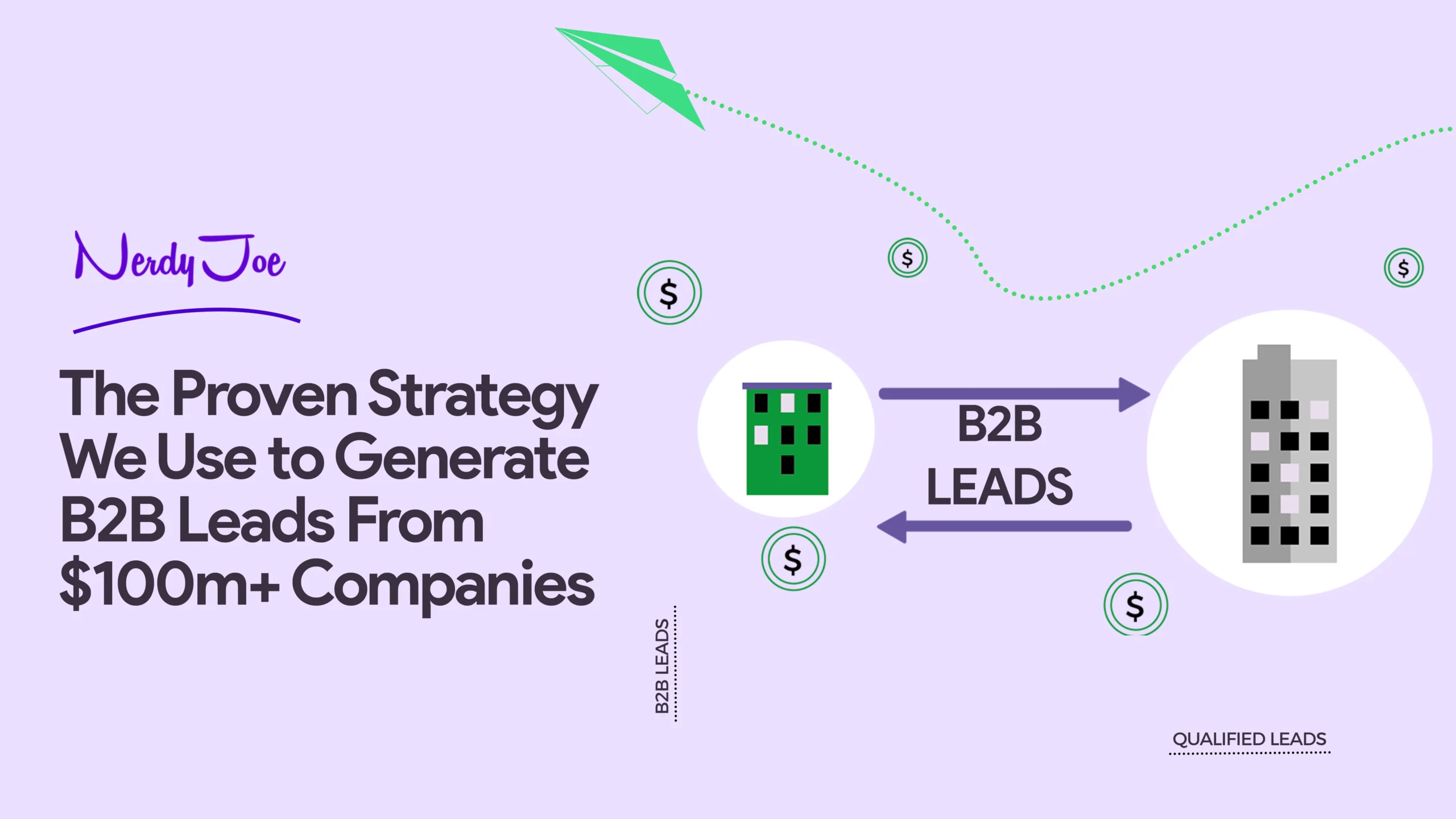
![How to Generate B2B Leads With Cold Outreach [Case Study]](https://nerdyjoe.com/wp-content/uploads/2024/06/1669218674-artboard-1-copie-4-3x-1-scaled.webp)
